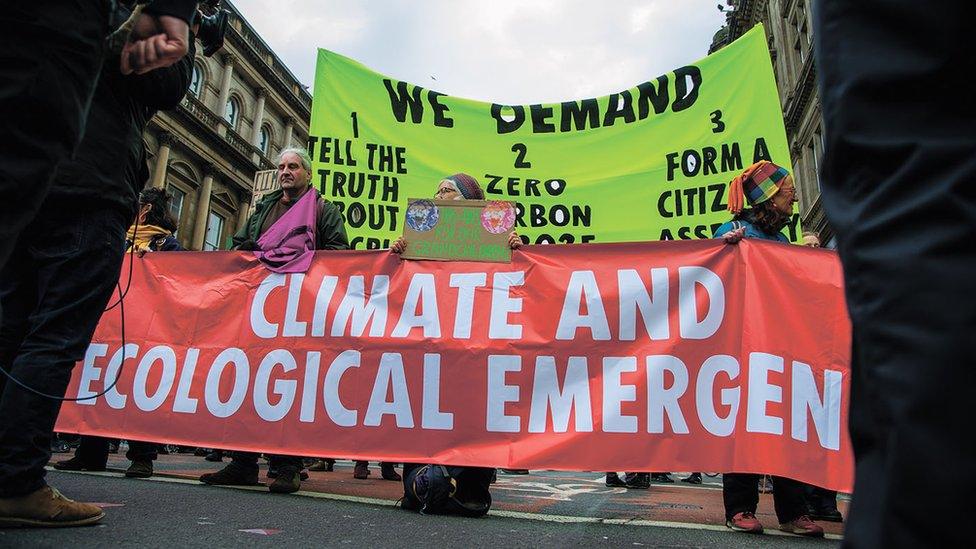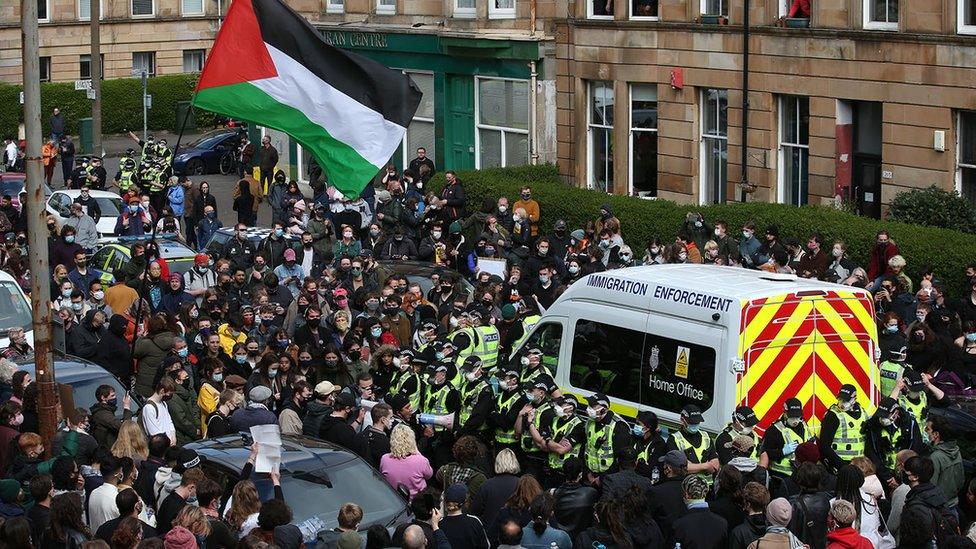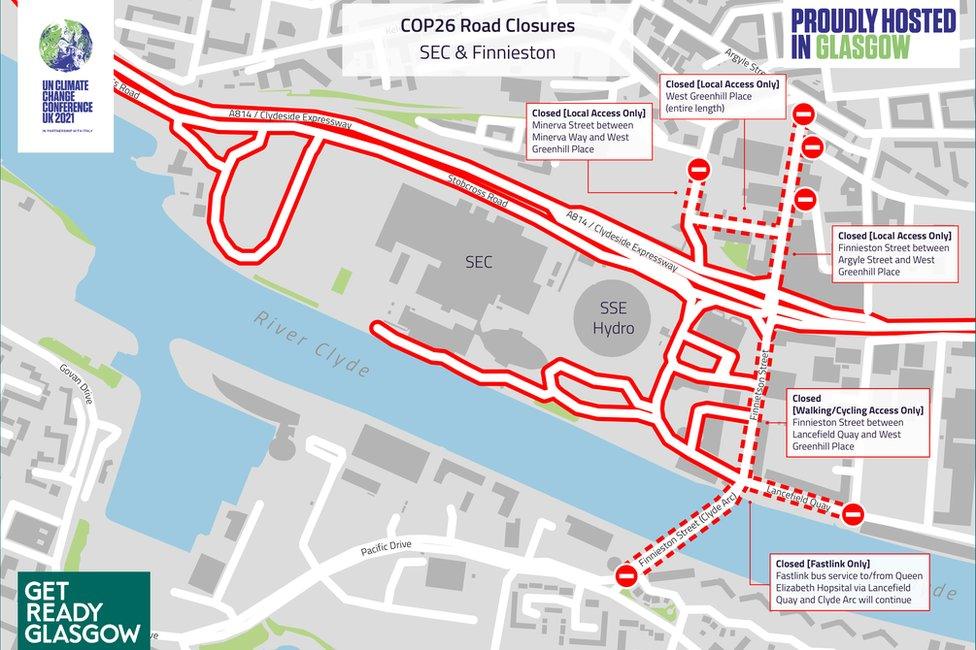COP26: Glasgow will 'welcome' climate protests says council leader
- Published

Susan Aitken said protest was crucial to democracy but should respect the city and its residents
Glasgow will "welcome" climate change protesters when the city hosts the COP26 summit in November, the city's council leader has said.
Susan Aitken said it was vital people were allowed to have their voices heard in order to influence world leaders.
She said Glasgow had a long tradition of protest, but urged campaigners to respect the city and its residents.
About 10,000 police officers will be deployed each day during the summit.
Ms Aitken described COP26, which is expected to be attended by about 120 heads of state, as a "generational event."
"It is the moment at which world leaders will determine the future course of humanity and the planet," she told BBC Radio's Good Morning Scotland programme.
Asked about the possibility of direct action or disruption by campaigners, she said protest was "democratically absolutely crucial".
"I think we will see protests, undoubtedly - and that's something we as a city welcome," she said.
"Glasgow has long been a city of protest. We are known for our bolshiness and for speaking up on issues that concern us, and we certainly wouldn't be looking to turn away people coming in to make their voices heard at COP.
"It's enormously important that civil society from across the world is there, able to influence what those world leaders are discussing."
While she welcomed the prospect of demonstrations, she added: "Obviously we want that to happen in a way that respects the city, that respects the people of the city and the residents of the city - and that's certainly what we will be asking protesters to do."

Glasgow - a history steeped in protest

1915 Rent Strike - Many women were angered by rent prices raised during World War One while their husbands were away fighting. Led by Mary Barbour, about 25,000 tenants refused to pay their rent, eventually prompting the government to introduce a rent freeze.
1919 Battle of George Square - A series of disputes known as "Red Clydeside" took place between workers in the Glasgow area and the government during the war. Within months of the war ending, tens of thousands of workers gathered in Glasgow's George Square during a strike demanding a reduction of the 54-hour working week. Fearing insurrection, the authorities deployed 10,000 troops, six tanks and machine gunners to the city.
1988 Nelson Mandela Freedom March - Tens of thousands attended a rally on Glasgow Green demanding the release of the anti-Apartheid leader. Five years later he visited the city to personally thank its residents for their support.
1990 Poll tax demo - Glasgow was at the forefront of opposition to the tax, introduced to replace domestic rates and piloted in Scotland in 1989, a year ahead of the rest of the UK. More than a million Scots withheld their payments and 50,000 marched through Glasgow the following year.
2018 Scottish independence rally - Police said about 35,000 attended a march and rally at Glasgow Green, while organisers put the figure much higher, at about 80,000. It was one of a series of pro-independence events held in the city in recent years.
2021 Kenmure Street protest - When two Sikh men were detained by the Home Office for alleged immigration offences, hundreds of people surrounded the van, resulting in a stand-off lasting several hours before the men were released.

Police officers from across the UK will be drafted in to provide security for the summit, which was due to take place last year but was postponed because of the Covid pandemic.
A number of road closures are planned close the the Scottish Event Campus venue.

A number of roads will be closed around the summit venue
Police Scotland said it recognised its duty under the European Convention on Human Rights to protect the rights of people who wish to protest peacefully, balanced against the rights of the wider community.
Deputy Chief Constable Will Kerr said: "We will provide a proportionate policing response to any protests and will seek to engage with known protest groups to ensure their rights to peaceful assembly and protest are met.
"Those wishing to protest have a responsibility to do so within the law and we would remind the small minority of people who may be intent on violent disorder or causing damage that we will deal with them swiftly and robustly."
'Covid-safe event'
Ms Aitken said that despite the ongoing Covid crisis, it was vital the event was attended in-person by world leaders, rather than being held virtually, as this was more likely to deliver the required outcomes.
She insisted that strict precautions would be in place to ensure it was not a "super spreader" event.
"The public health protocols that will be put in place will be absolutely focused on making sure that the city is protected but also that the delegates are protected - and it isn't some kind of super spreader event," she said.
"We will do everything possible to ensure that is not the case and this is a Covid-safe event when it takes place in November."